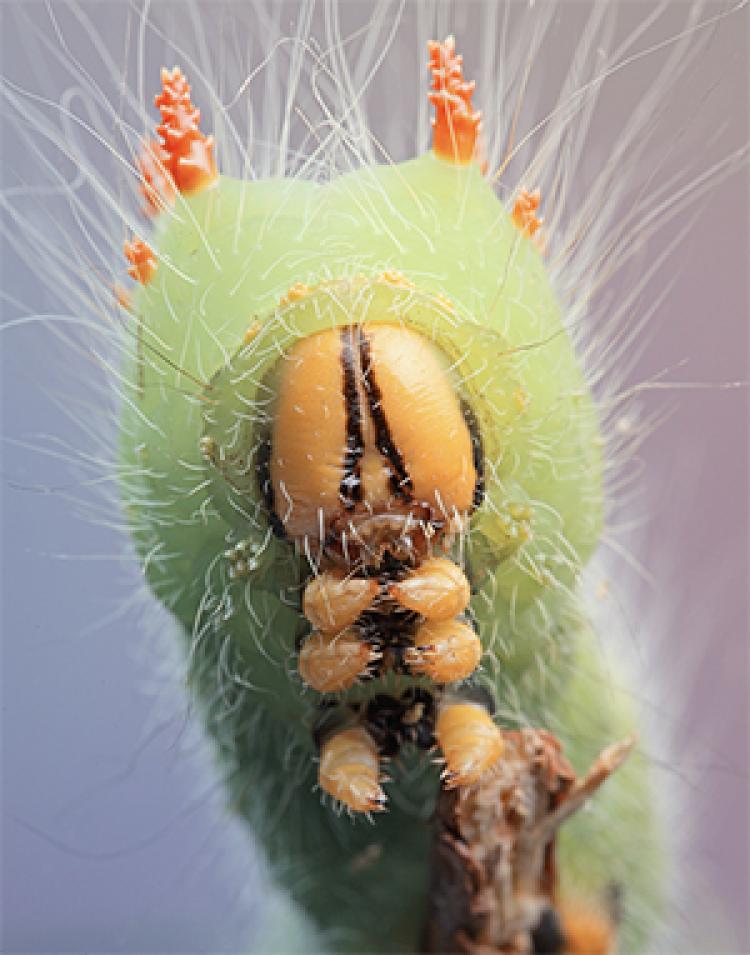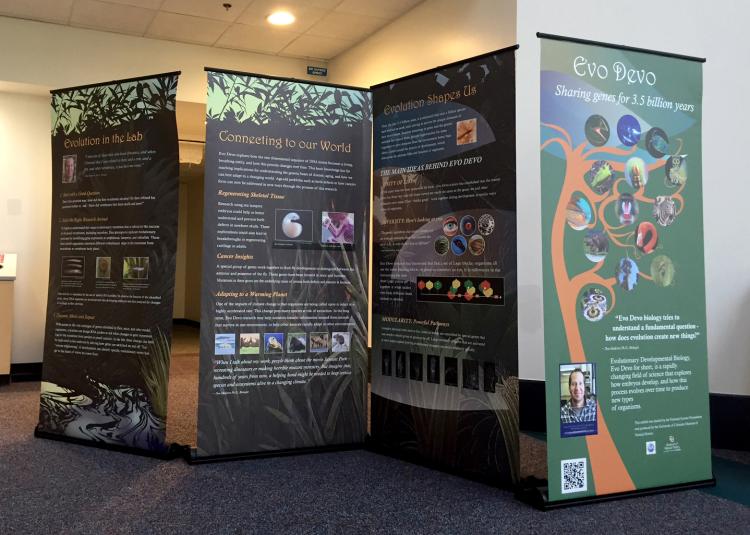The CU Museum is closed. We will be reopening soon.
During this time, collection visits will be available by appointment and other special access requests will be considered on a case-by-case basis.
Please email cumuseum@colorado.edu for more information.
Traveling Exhibit: Evo Devo

"Evo-devo tries to understand a fundamental question—how does evolution create new things? How does this force of nature, shaping life on the planet, work at fundamental levels?" (Dan Medeiros, a leading evo-devo researcher and Associate Professor of EBIO at the University of Colorado, Boulder).
The exhibit explores the main ideas behind evo-devo, such as how genes act like switches to control the form of an organism as it develops. It explains connections this fundamental research has to our daily lives. It also highlights some of the key research that has contributed to this exciting area of science—from Darwin’s early ideas about natural selection, to today’s gene sequencing and the Human Genome Project.
This exhibit was produced through collaboration between the Department of Ecology and Evolutionary Biology and the Museum of Natural History at the University of Colorado Boulder and was funded by the National Science Foundation.

Exhibit Contents
- 5 colorful floor banners containing photos, graphics, and text (36" x 72”)
- 1 shipping crate (15" x 27" x 51”)
For more information or to book the exhibit, contact cumuseumtech@colorado.edu.

